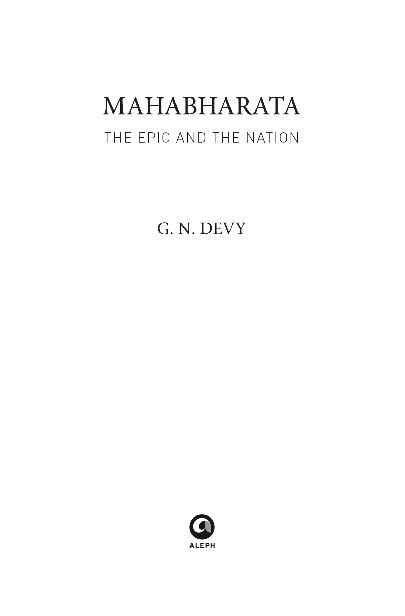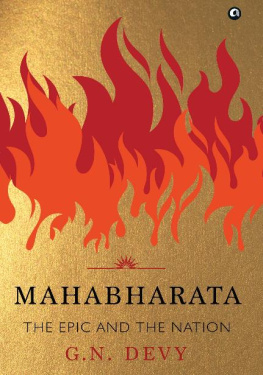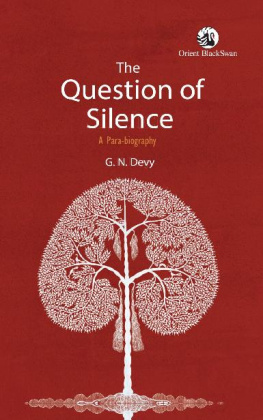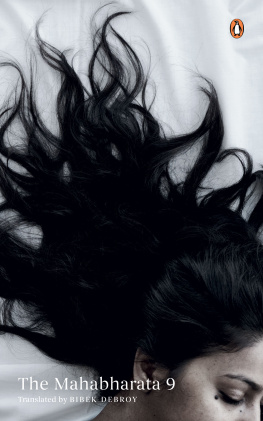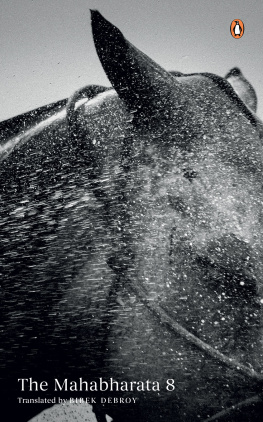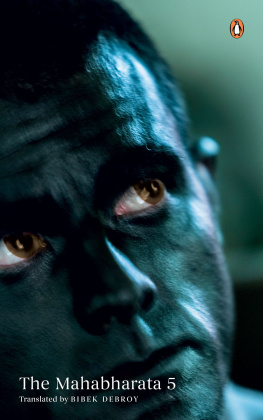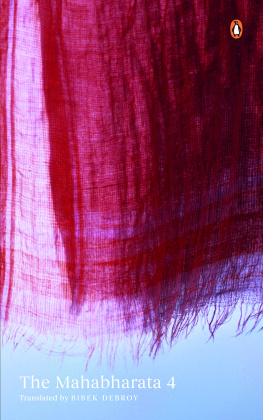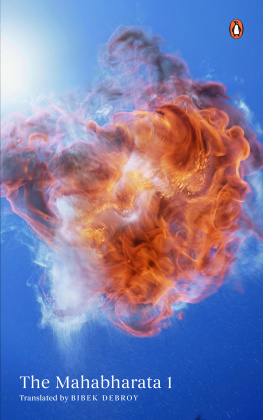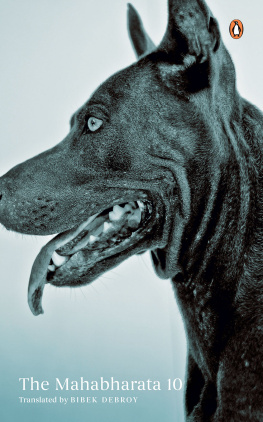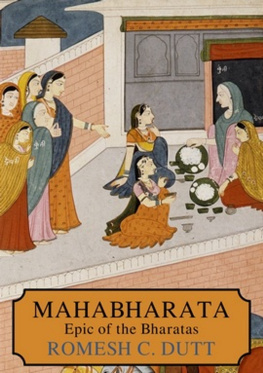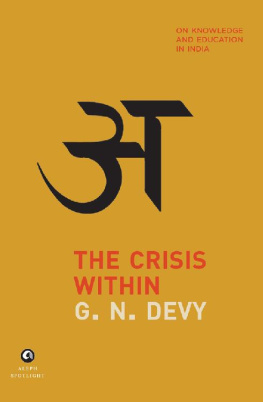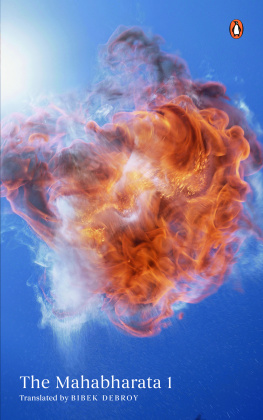ALEPH BOOK COMPANY
An independent publishing firm
promoted by Rupa Publications India
First published in India in 2022
by Aleph Book Company
7/16 Ansari Road, Daryaganj
New Delhi 110 002
Copyright G. N. Devy 2022
The author has asserted his moral rights.
All rights reserved.
Cover image CrushPixel
The views and opinions expressed in this book are those of the author and the facts are as reported by him, which have been verified to the extent possible, and the publisher is not in any way liable for the same.
The publisher has used its best endeavours to ensure that URLs for external websites referred to in this book are correct and active at the time of going to press. However, the publisher has no responsibility for the websites and can make no guarantee that a site will remain live or that the content is or will remain appropriate.
No part of this publication may be reproduced, transmitted, or stored in a retrieval system, in any form or by any means, without permission in writing from Aleph Book Company.
ISBN: 978-93-90652-90-7
1 3 5 7 9 10 8 6 4 2
This book is sold subject to the condition that it shall not, by way of trade or otherwise, be lent, resold, hired out, or otherwise circulated without the publishers prior consent in any form of binding or cover other than that in which it is published.
PREFACE
I do not recall when I first heard the name Mahabharata and when I started recognizing the stories from the epic as being from it. It happened without my being conscious that the epic had started surrounding the space for the mythic construction of the cosmos for myself. Throughout the years of my growing up, literary works, plays, films, oral narratives, calendars, paintings, and motifs drawn in the public space in my village kept bringing to me various episodes of the Mahabharata story. A lot of the language that was spoken around me and the language that I spoke, without my knowing, reinforced the deep connection between the epic and me. Later, I went to colleges and universities to study literature. There, an unwritten convention about what could be, and what could not be, studied as literature signalled to me that the Mahabharata was not to be, or could not be, part of that study. As a teacher of literature, though I did some experimentation with how and which literature was to be taught, I remained well within the invisible unwritten conventions and biases of discipline. Then, I decided to shift track, to go out and work with members of the Adivasi community. There, I heard live performances of a different Mahabharata . That ignited my desire to revisit the epic. Life, by then, had become crowded for me. There were always the unfinished assignments, pending deadlines, and compulsions of what I must write. Besides, there were demands on my time and mind arising out of my activism. During the rare moments when I was on my own, I used to promise myself that someday I would revisit the Mahabharata and see for myself what it means, at least what it means for me.
Then one time, when I was in the seventh decade of my life, a strange virus swooped down upon the humans. They decided to lock down life, with everybody asked to stay inside their dwellings. Universities, schools, offices, factories, farms, streets, wars, parties, theatres, and public halls, all were kept under lock and key. The sun and the moon became distant. Only TV and digital screens were kept alive for talking about the virus and spreading other viruses. Being on my own, I thought I would open the book of my memory and pen a portrait of a poem that has been speaking to the nation for two millennia. I have done it in the hope that the future world is free of all viruses, tangible and abstract. My mind is at peace with the future.
G. N. Devy
September 2020
THE EPIC QUEST
POSITIONING THE EPIC
It is hardly necessary to say that the Mahabharata is an extraordinary cultural production. It ranks among the very greatest in the entire range of world literature, and, within its genre, the epic ranks very high. It has exerted a profound influence on the thought and life of millions in the subcontinent, and it continues in our time to influence life in numerous ways. It would be no exaggeration to say that the Mahabharata has provided the horizons of imagination to Indian culture and civilization. Since it came into being, it has survived through recitals, renderings, revisions, translations, poetry, and fiction; through adaptations in theatre and dance and through representations in sculpture, painting, cinema, TV, and digital media. In India, kingdoms and dynasties have come and gone; religious sects have emerged, come to be popular, and declined; schools of philosophy have been formed and replaced by other schools; art forms have emerged and in subsequent eras been overshadowed by other art forms. However, the Mahabharata has never ceased to excite its audiences and viewers. It has not ceased to offer every individual, time and again, opportunities to connect with it. It has also allowed individuals to dig into it and disagree with it on many points. It has not been made dull by time.
If one were to think of it just as a story bringing together myth, legend, history, and pure imagination, the narrative is simple: a devastating war fought between cousins, with almost all the regional contemporary rulers of the time aligned on one or the other side. The story, read at this level, is spread over five generations, while the war itself is fought over eighteen days, each day bringing in new twists and turns into the narrative. The major characters are Shantanu, Ganga, and Satyavati of the first generation; Bhishma, Vyasa, Vichitravirya, Chitravirya, Chitrangada, Amba, Ambalika, and Ambika of the second generation; Pandu, Kunti, Madri, Dhritarashtra, Gandhari, Vidura, Krishnas father Vasudeva, and some acharyas, mainly, of the third generation; Karna, the three sons of KuntiYudhishthira, Arjuna, and Bhima, two sons of MadriNakul and Sahadeva, Duryodhana, Dushasana and their ninety-eight brothers, Krishna, Balarama, Shakuni, and an array of other kings and princes who join the action, in the fourth generation; and Abhimanyu, Uttara, Ghatotkacha, and many named but minor characters of the fifth generation. These are only the main characters.
There is also a much larger cast of characters in the form of servants, messengers, soothsayers, charioteers, fighters, and mythological persons, offering quite a copious representation of typeshuman, supernatural, and from the shadow world beyond reality.
Then, there are the numerous brothers of Duryodhana and Dushasana named in the poem: Dussaha, Dussalan, Jalagandha, Sama, Saha, Vindha, Anuvindha, Durdharsha, Subaahu, Dushpradharsha, Durmarshana, Durmukha, Dushkarna, Vikarna, Sala, Sathwan, Sulochan, Chithra, Capachithra, Chithraaksha, Chaaruchithra, Saraasana, Durmada, Durvigaaha, Vivilsu, Vikatinanda, Oornanaabha, Sunaabha, Nanda, Upananda, Chithrabaana, Chithravarma, Suvarma, Durvimocha, Ayobaahu, Mahabaahu, Chithraamaga, Chitrakundala, Bheemavega, Bheemabela, Vaalaki, Belavardhana, Ugrayudha, Sushena, Kundhaadhara, Mahodara, Chithrayudha, Nishamgi, Paasi, Vrindaaraka, Dridavarma, Dridakshatra, Somakeerthi, Anthudara, Dridasandha, Jarasandha, Sathyasanda, Sadasuvaaka, Ugrasravas, Ugrasena, Senani, Dushparaja, Aparajita, Kundasai, Visalaksha, Duraadhara, Dridahasta, Suhastha, Vatavega, Suvarcha, Adityaketu, Bahawaasi, Nagadata, Ugrasaai, Kavachi, Kradhana, Kundhi, Bheemavikra, Danurdara, Veerabaahu, Alolupa, Abhaya, Dhridhakarmavu, Dhridharathaasraya, Anaadhrushya, Kundhabhedi, Viraavi, Chithrakundala, Pradhama, Amapramaadhi, Deerakharoma, Suveeryavaan, Dheerkhabaahu, Sujaatha, Kaanchanadhwaja, Kundhaasi, and Virajasa. Yuyutsu is Dhritarashtras son by a Vaishya wife.

